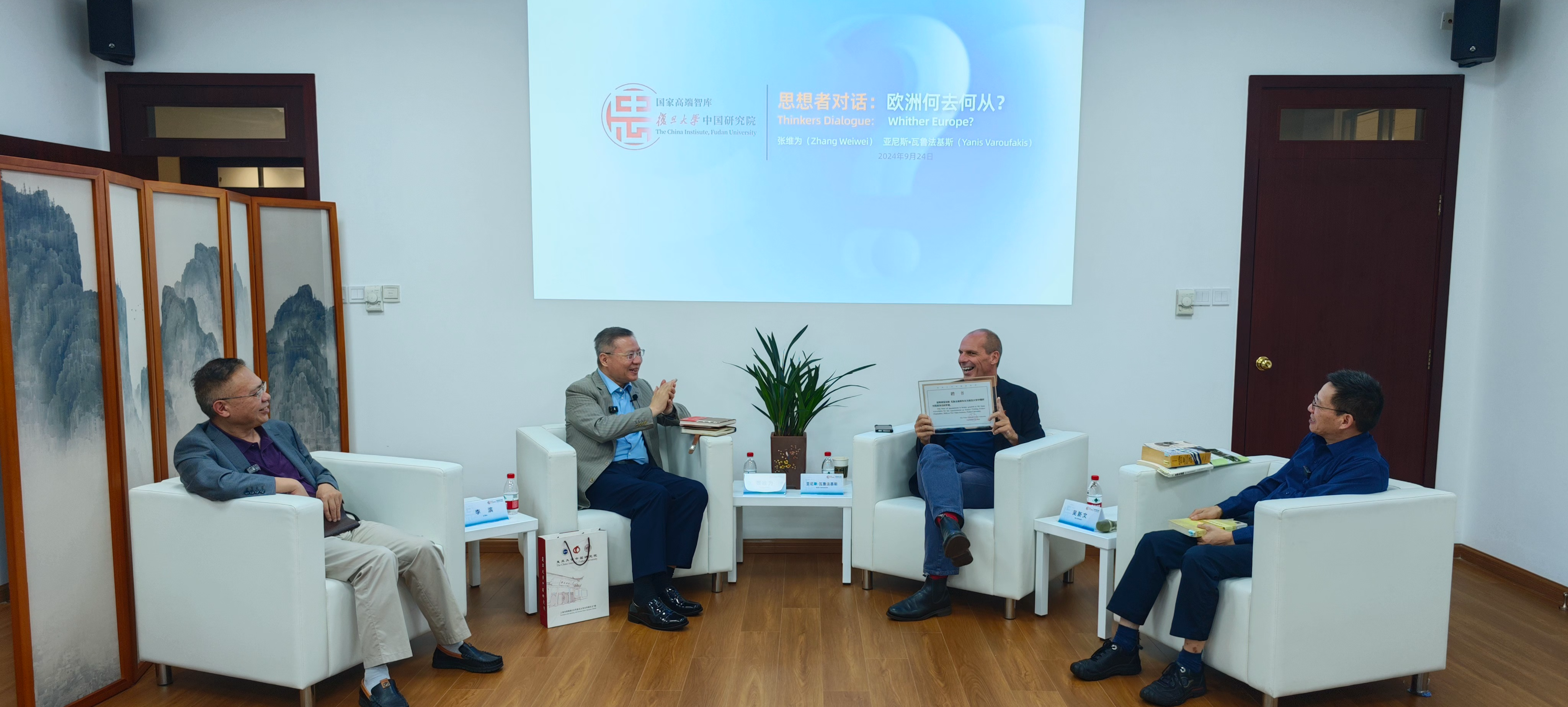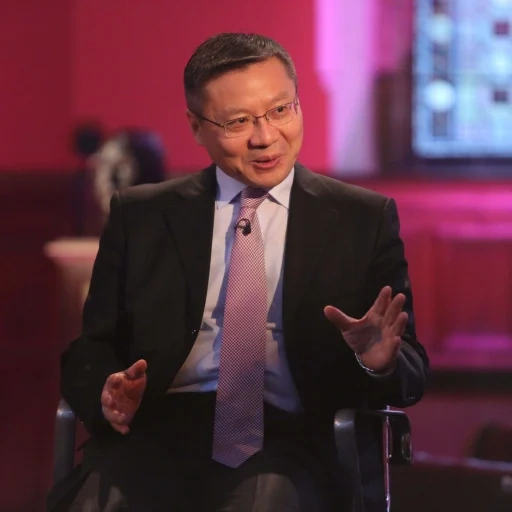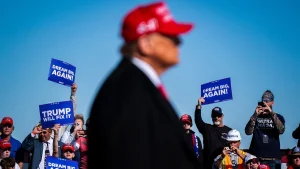China Will Not Save the US Again

Zhang Weiwei:
The financial crisis of 2008 in the United States, with all its global implications, is, as you said, roughly comparable to the 1991 collapse of the Soviet Union. Do you make this analogy or comparison in a broad, philosophical sense, or is it something more concrete, where specific similarities can be observed? I’d like to hear your views on that powerful statement.
Yanis Varoufakis:
Both, because if a philosophical statement is not backed by concrete analysis, then it’s not worth anything. If the concrete analysis makes sense, there has to be a philosophical overarching argument. Look, capitalism would have died a long time ago, in 1929, if it wasn’t for the Second World War. The Second World War essentially saved capitalism by saving American capital, in combination with Roosevelt’s New Deal. Essentially, what happened was that central planning saved capitalism. The war allowed politics to coalesce around the settlement plan. Then, after the war, capitalism was given another lease on life by extending the American central plan, as I described during my lecture, in Europe and in Japan. That extension prolonged the life of capitalism all the way to the 1970s.
That system died when America lost its surpluses. Capitalism was then given another major boost by completely reversing the surplus recycling mechanism that the Americans had created between 1944 and 1971. Remember, between 1944 and 1971, the Americans had a surplus. The money they were making from this surplus was given to Europe and Japan. That was what was happening until 1971. After that, the Americans had a deficit, which they used to draw in the surpluses of Germany, France, Japan, and then China. This is what kept capitalism alive: Chinese savings, Japanese savings, and profits created in this country, Japan, and Germany. It was a kind of symbiosis because your factories could work fast and efficiently, as you had demand from the Americans, who didn’t have money. So, they printed the money and gave it to the German capitalists, Japanese capitalists, Italian capitalists, and Chinese capitalists. What did they do with the money? They took it to Wall Street.
So, the recycling gave capitalism its most exorbitant, exuberant, dynamic phase—that’s what we call globalization. It was all globalization, because Bretton Woods was global too. But this was globalization with financialization and complete anarchy, because it was the bankers who were doing the recycling, and the governments did not have the control they used to—at least not the American or German governments. You remember, in the International Monetary Fund, there were serious discussions happening up until 1974, where they would get together in Washington and decide amongst themselves the exchange rates. They weren’t leaving it to the markets. After that, it was not anarchic but an interesting recycling mechanism, which was based on a really anti-neoliberal and anti-capitalist notion: the idea that the whole system is run on the basis of the American deficit. Without the American deficit, global capitalism would die. This is what I was saying in my book The Global Minotaur. The Minotaur is the American deficit, which needs to be fed by everyone else to keep the world capitalist economy in a kind of unbalanced equilibrium. 2008 was a new 1929. In 1991, the Soviet Union collapsed, and that simply accelerated this recycling mechanism, which I call the Minotaur.
So, 1991 was the end of Soviet communism and Eastern European communism. 2008, the new 1929, I believe, killed capitalism. The American political system, which gave capitalism an extended life during the war in 1945 and in the 1970s, I don’t believe can do it anymore. I do not believe that capitalism can be given another new lease on life by the American political establishment. You can see they are dysfunctional. They cannot build nuclear submarines. You take a train from New York to Washington, and it doesn’t work—it breaks down, and you have to get out and walk. America has lost its capacity. The American state has been hollowed out. They cannot build bridges, something they used to do really well. The American state can no longer manage world capitalism.
In addition to that, going deeper into the roots of the capital accumulation process, this is the topic of my last book, which you kindly mentioned: Technofeudalism. Totally spontaneously, completely unplanned, a new form of capital has been born with the Googles, the Metas, the Apples, and so on. You have it too. The only two countries that have it are the United States and China, with Bilibili, WeChat, Baidu, and so on. But in the West, this capital is completely without control, without political supervision. It has a fantastic capacity to create new fiefdoms, a new form of feudalism—digital feudalism. I call it technofeudalism. Even though capital has triumphed, capitalism—that is the main hypothesis of my book—has already been transformed, without us even realizing it, into a fiefdom of technofeudalism. In that sense, I’m saying that 2008 was to capitalism what 1991 was to Soviet communism: its end.
Zhang Weiwei:
I think it’s a very philosophical as well as a down-to-earth approach to this analysis. Now, I’m thinking about this very issue you mentioned—specifically, the recycling of U.S. money by Germany, Japan, and later China, which had to do with the way China embraced globalization. Here, I can add a footnote because, at that time, I was working in the Chinese government and had the chance to meet with many Chinese leaders. Actually, within the Chinese leadership, there was also debate about how to face this globalization. Basically, at that time, Chinese leader Deng Xiaoping had a line of thinking more or less like this: We cannot continue with the Soviet model. Within the Soviet socialist camp, you traded with each other, but that would not be internationally competitive. So, we essentially have to establish relations with capitalism and engage with this globalization, pushed forward by the United States.
At that time, he famously said a phrase in Chinese called 趋利避害, which literally means to “maximize the advantages and minimize or ward off the disadvantages.” More specifically, the United States was pushing what we called comprehensive globalization—it encompassed economic, political, financial, and social aspects, including privatization, democratization, and liberalization, among others. Deng Xiaoping argued for economic liberalization, yes, but political liberalization, no. Gorbachev embraced both, and he failed.
Even for economic globalization, we should also adopt the same approach—a critical approach—in the areas where China has more confidence. So, we have a relatively low labor cost, and other favorable conditions. We are more open in certain areas. But in other domains, for instance the capital market, we have been very cautious because we’re not sure that will work. Even up to today, most Chinese, both at the grassroots and top leadership levels, still think globalization is, on the whole, a positive thing—we are beneficiaries of the process. As a result, China has become better, richer, and more prosperous than before.
 China has managed to be one of the winners of globalization.
China has managed to be one of the winners of globalization.
Yet, there is a downside to it as well. Look at China today. When we talk about the 2008 crisis, some people say that in 1989, China saved socialism, and in 2008, China saved capitalism. And now, again, the West is in crisis, the United States is in crisis. Many of us have written about this argument: we cannot save the United States again. We will not do that. This is the same stance with the central government, as U.S. senior officials have come to China wanting China to buy their cherries. We actually sell more and more, obviously.
Yanis Varoufakis:
Don’t think in terms of black and white about globalization, as if it’s simply a good thing or a bad thing. Before you go anywhere near globalization, you first need to define what it is. Do you mean intensified international trade? That’s always a good thing—it’s always good to trade more—but that’s not what globalization is. Globalization, the way I understand it, which comes out of the 1970s, is the total unhinging of financial power, allowing money to rule the world. That’s what globalization was. Essentially, power shifted. If you want to think of it in terms of the transformation from feudalism to capitalism, power shifted from landowners to the owners of factories—to put it bluntly, from the owners of land to the owners of capital. That was the great transformation from feudalism to capitalism.
Then, with financialization, you have another transition—from the owners of capital to the bankers. The bankers were supposed to be the servants of capital, but with globalization, they became the masters of the universe. With one press of a button, they could destroy two countries at once by taking billions from the United States, hollowing out entire manufacturing areas, destroying the working class there, and throwing the money into Korea. Then, when the bubble burst in Korea, with the press of the same button, the money would leave Korea, and the country was destroyed in 1998. That exorbitant power of the money men—that’s a terrible thing. But we must not conflate that with trade.
Zhang Weiwei:
On this point, China is fortunate.
Yanis Varoufakis:
That’s why people said to me, people from the right-wing in New York and USA asked: Yanis, why are you so against globalization? It has lifted so many billions of people out of poverty.
I said it lifted the Chinese out of poverty because they did not globalize in the way you describe—because of capital controls, because they didn’t listen to you. If they had listened to you, if China had listened to the International Monetary Fund and the World Bank, and if you had liberalized your capital markets, China would be a desert now. In 1998, it would have been destroyed. China would not be what it is today.
Editor: Catherine Yang





create company Malta
Definitely believe that which you said. Your favorite justification seemed to be on the web the easiest thing to be aware of.
I say to you, I definitely get annoyed while people consider
worries that they plainly don’t know about.
You managed to hit the nail upon the top as well as defined out
the whole thing without having side-effects , people can take a
signal. Will probably be back to get more. Thanks